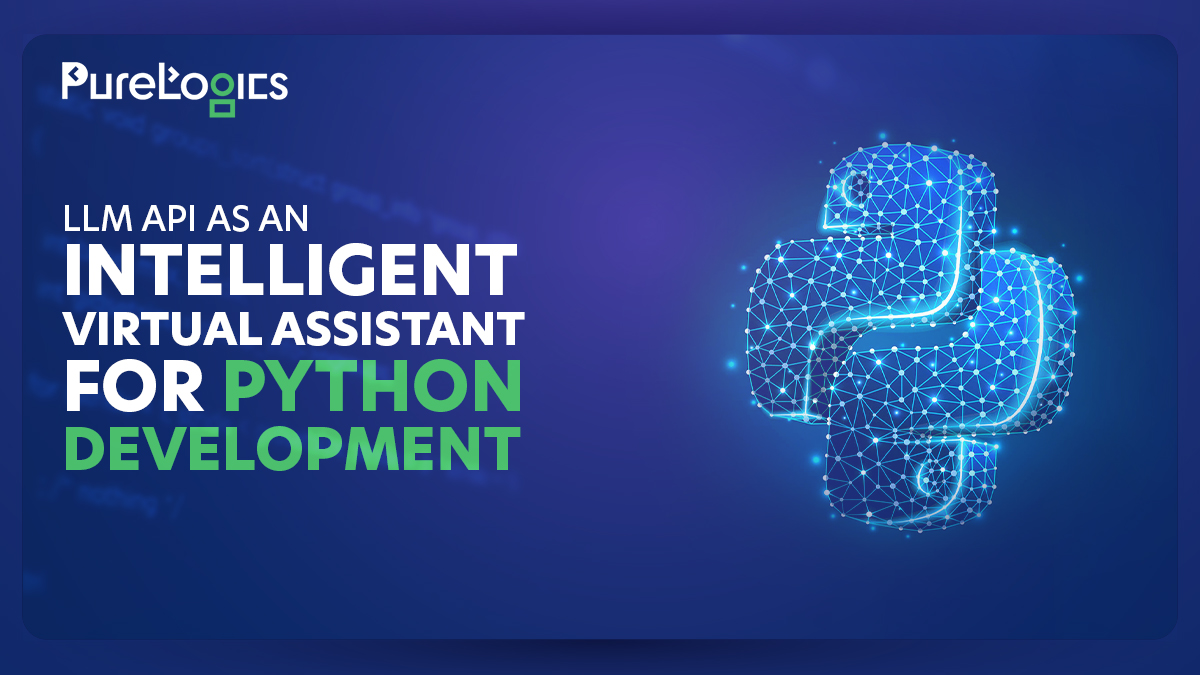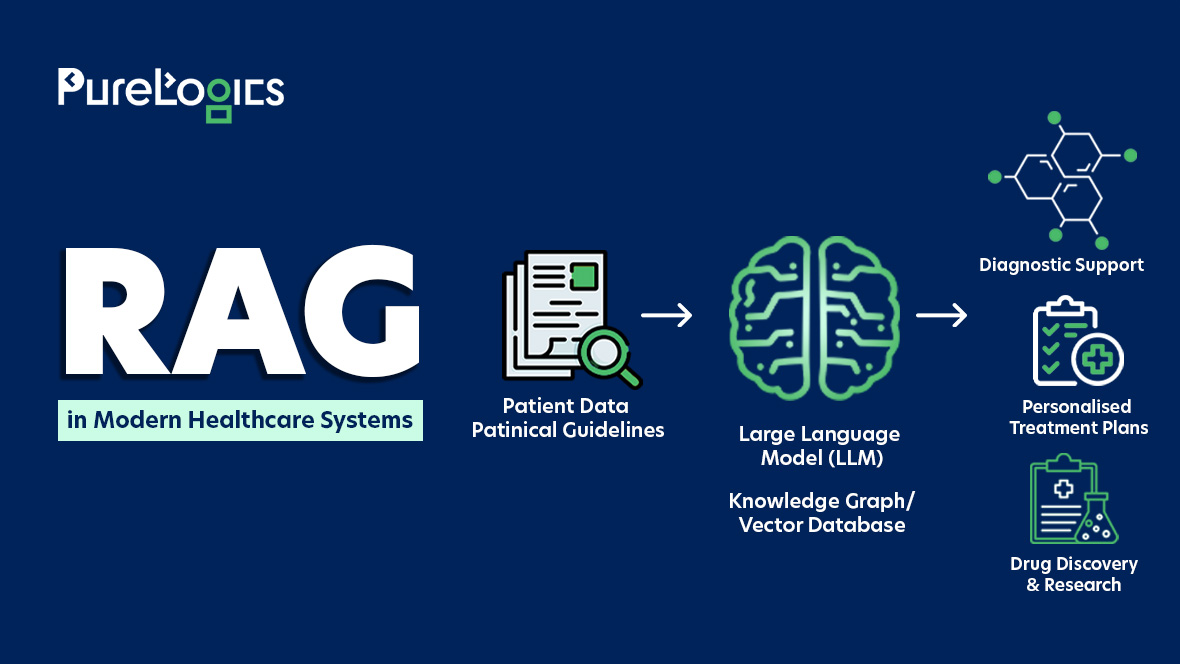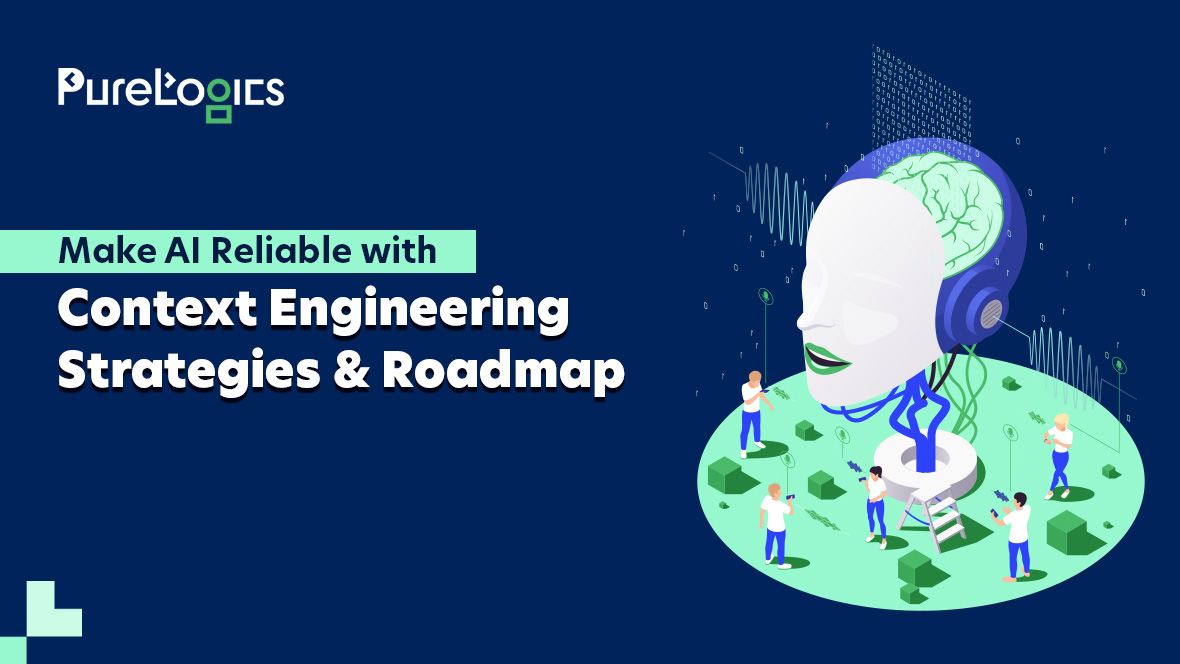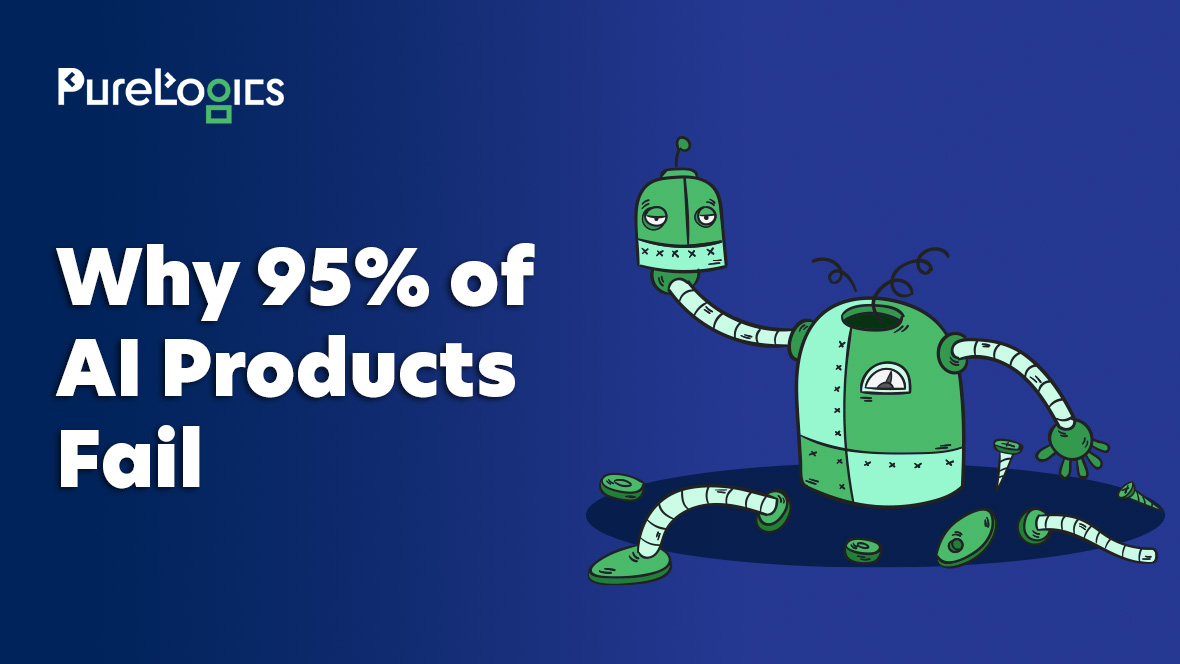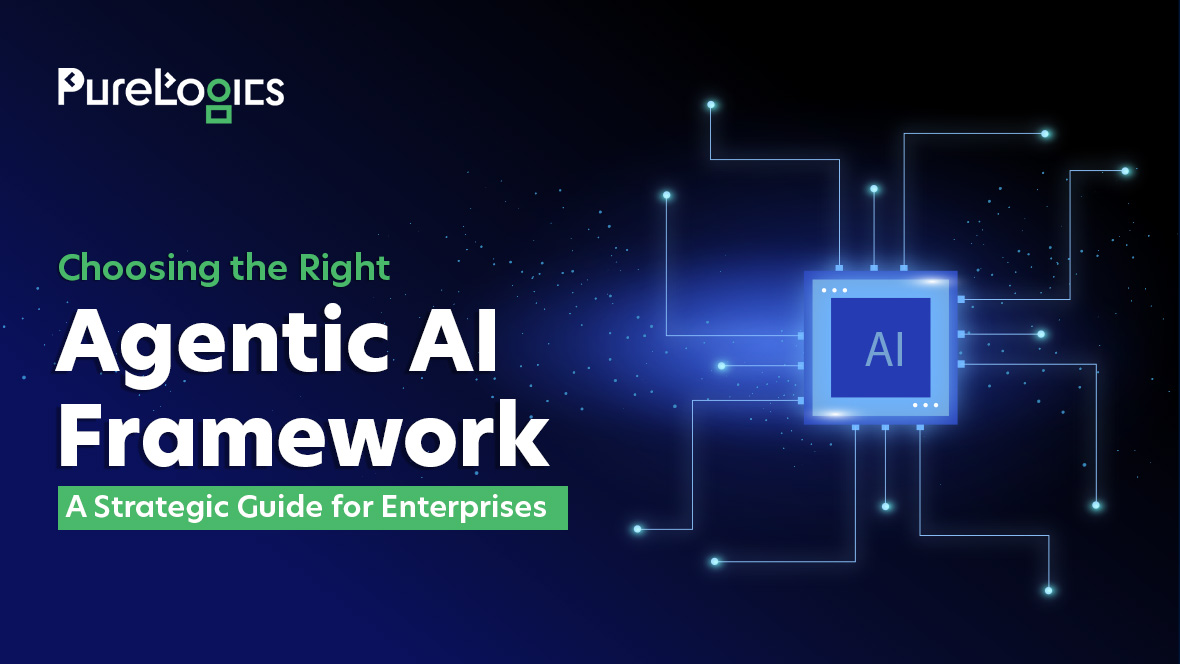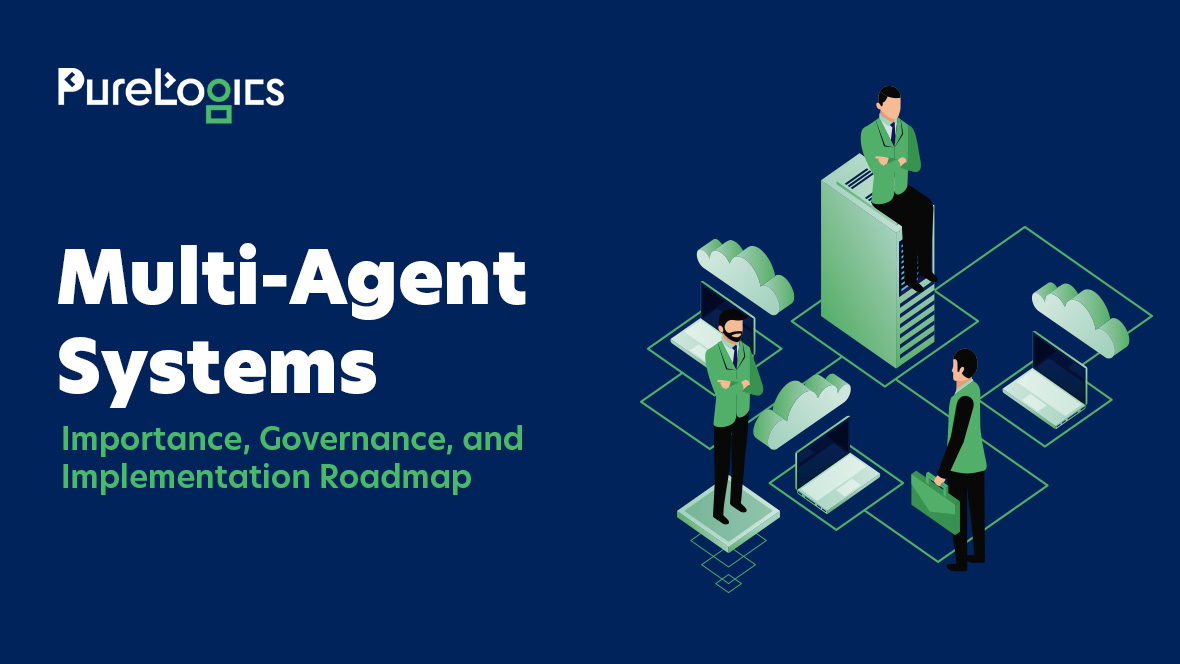In today’s software development industry, efficiency and innovation are extremely important. Developers always look for tools and technologies that can automate their daily workflows, enhance productivity, and reduce the time of new applications’ delivery to the market. Nowadays, there is one tool that is gaining worldwide attention: the Large Language Model (LLM) API. It works as a smart virtual assistant for Python development.
This blog post throws light on the extraordinary potential of LLM APIs, exploring their capabilities, applications, and best practices for integration into your Python development workflow. So, without any further ado, let’s dig out LLM APIs.
Contact Us Today
Ready to transform your Python development? Contact US to get started now!
What are LLM APIs?
Large Language Models (like GPT-4 by OpenAI) are advanced AI systems trained on vast datasets to interpret and produce human-like text. These models can perform a myriad of language-related tasks, including code generation, debugging assistance, documentation, and even tutoring.
By integrating an LLM API into your development environment, you can harness the power of these models to enhance your Python development process.
Capabilities of LLM APIs in Python Development
Now, let’s find out the transformative capabilities of LLM APIs in Python development!
Code Generation and Autocompletion
LLM APIs can assist in generating boilerplate code, complex functions, and entire scripts based on natural language prompts. This capability significantly reduces the time spent on writing repetitive code and allows developers to focus on more critical aspects of their projects.
Intelligent autocompletion powered by LLMs can suggest code snippets and complete lines of code as developers type, thereby improving coding speed and accuracy.
Debugging and Error Resolution
Debugging is a crucial yet time-consuming aspect of software development. LLM APIs can analyze error messages and provide suggestions for resolving issues. They can also offer insights into common pitfalls and best practices, helping developers avoid potential bugs.
By explaining the cause of errors in simple language, LLMs make it easier for developers, especially beginners, to understand and fix problems in their code.
Documentation and Code Comments
Writing comprehensive documentation is often overlooked due to time constraints. LLM APIs can automatically generate detailed documentation for functions, classes, and modules based on the code. This ensures that the codebase remains well-documented and easily understandable.
Similarly, LLMs can insert meaningful comments within the code. They explain the purpose and functionality of different sections, which is invaluable for maintaining and scaling projects.
Learning and Tutoring
For developers looking to learn new Python libraries or concepts, LLM APIs can act as personal tutors. By answering questions, providing examples, and explaining concepts in detail, these models can accelerate the learning curve.
Interactive tutorials and coding exercises generated by LLMs can provide hands-on experience, making the learning process more engaging and effective.
Project Management and Collaboration
LLM APIs can assist in project management tasks such as writing user stories, creating task lists, and generating progress reports. This integration ensures that the development process remains organized and on track.
Collaboration among team members is enhanced as LLMs can facilitate code reviews, suggest improvements, and ensure coding standards are met.
Integrating LLM APIs into Python Development
Choosing the Right LLM API
Several LLM APIs are available, each with its own set of features and capabilities. Popular options include OpenAI’s GPT-4, Google’s BERT, and Microsoft’s Turing. Evaluate these options based on factors such as ease of integration, supported languages, and pricing.
Setting Up the Environment
Integrate the chosen LLM API into your development environment using appropriate SDKs and libraries. For Python, this typically involves installing the API client library via pip and setting up authentication credentials.
Configure your Integrated Development Environment (IDE) or code editor to leverage the LLM API. Many popular IDEs like VS Code and PyCharm offer extensions and plugins that facilitate this integration.
Defining Use Cases and Workflows
Identify specific use cases where the LLM API can add the most value. This could range from automating repetitive coding tasks to providing real-time code reviews.
Define workflows that seamlessly incorporate the LLM API into your existing development processes. Ensure that the integration is intuitive and does not disrupt the natural coding flow.
Training and Customization
While pre-trained LLMs are highly capable, customizing them to understand your project’s context and domain-specific terminology can enhance their effectiveness. Fine-tune the models using your codebase and relevant documentation.
Regularly update the models with new data and feedback to ensure they remain accurate and relevant.
Ensuring Security and Compliance
When integrating LLM APIs, it is crucial to ensure that sensitive code and data are protected. Use encryption and secure authentication methods to safeguard your information.
Comply with relevant data protection regulations and industry standards to avoid legal and compliance issues.
Best Practices for Maximizing the Benefits of LLM APIs
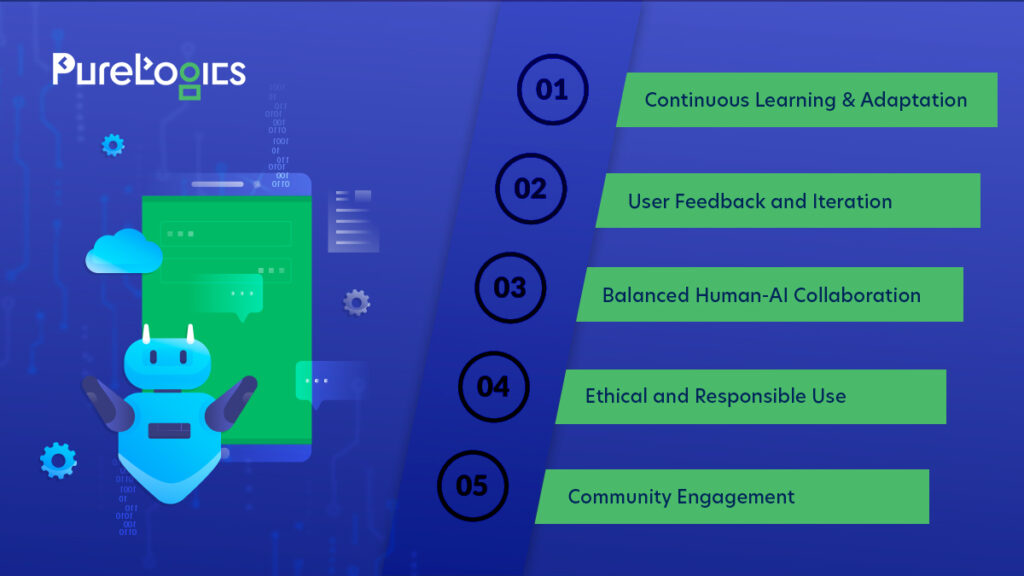
Continuous Learning and Adaptation
Stay updated with the latest advancements in LLM technology and regularly evaluate the performance of your integrated solution. Incorporate new features and improvements to maximize the benefits.
User Feedback and Iteration
Gather feedback from developers using the LLM API and continuously refine the integration based on their inputs. Address any pain points and enhance the user experience.
Balanced Human-AI Collaboration
While LLM APIs are powerful tools, they are not infallible. Encourage a balanced approach where developers use AI assistance to augment their skills rather than replace their judgment.
Ethical and Responsible Use
Ensure that the use of LLM APIs adheres to ethical guidelines. Avoid using the technology for malicious purposes such as generating harmful code or exploiting vulnerabilities.
Community Engagement
Engage with the developer community to share insights, best practices, and experiences with LLM APIs. Collaborative learning can drive innovation and improve the overall effectiveness of these tools.
Conclusion
The integration of LLM APIs as intelligent virtual assistants for Python development represents a significant leap forward in the realm of software engineering. By automating repetitive tasks, enhancing code quality, and providing valuable insights, these models empower developers to achieve more in less time. As the technology continues to evolve, using LLM APIs will be crucial for staying competitive and fostering a culture of innovation within your development team.
At PureLogics, we specialize in leveraging cutting-edge technologies like LLM APIs to enhance your development processes. Contact us today to learn how we can help you integrate these powerful tools into your workflow and boost your productivity.
Ready to transform your Python development? Contact PureLogics to get started now!


 [tta_listen_btn]
[tta_listen_btn]
 August 16 2024
August 16 2024

